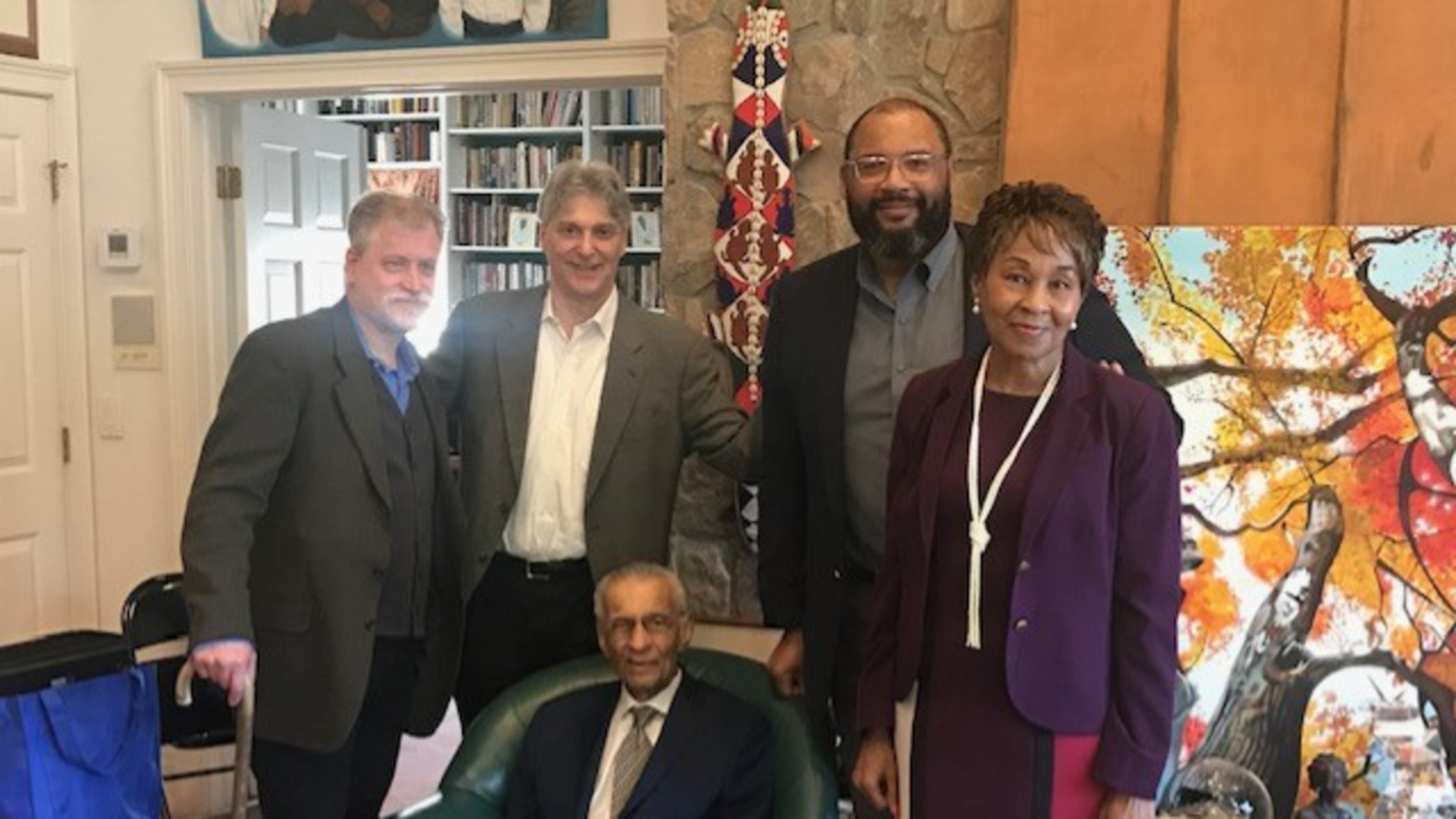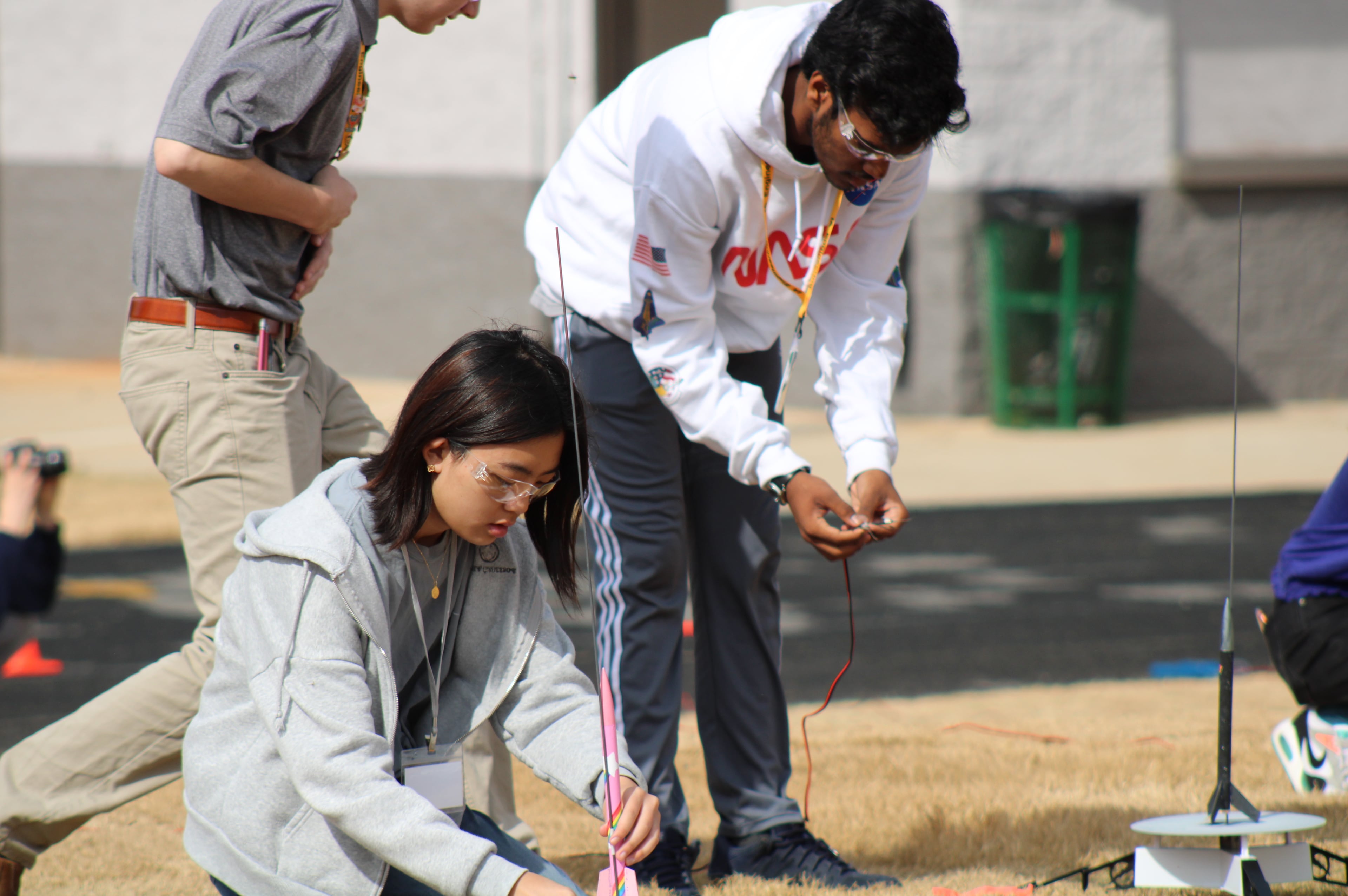Upward Bound inspires students to continue education

Thanks to civil rights leader C.T. Vivian’s initiative in 1966, thousands of high school students have had the opportunity to experience college and pursue an array of educational opportunities.
Originally known as VISION and now called Upward Bound, it is a federal program that allows high schoolers to attend participating colleges for four- to six-week periods during the summer, and it provides tutoring, counseling, work-study programs and mentoring throughout the school year. The program’s goal is to increase the rate of college enrollees and graduates. Denice Morgan, 71, credits Vivian and his creation of Upward Bound for setting the positive trajectory of her life.
Morgan was a Grady baby and raised on Northside Drive in the John Hope Homes community, low-income housing where many veterans of World War II, like her father, resided.
“My parents, James and Hattie Smith, had five children,” said Morgan. “My father worked, my mother was a housewife, and we were considered poor, but we children had no idea we were poor. My parents believed in education and family, that’s where our worth was. My parents invested in encyclopedias. A guy would come once a month to collect money, and my parents made sure we had those encyclopedias to help us study.”
Morgan attended Booker T. Washington High School where a photo of the Rev. Martin Luther King Jr., an alumnus of the school, hung beside a portrait of John F. Kennedy. The school was predominantly Black, as was Morgan’s church and neighborhood.
In 1967, during her sophomore year of high school, Morgan’s counselor contacted her parents to recommend Denice and her twin sister, Janice, for Upward Bound. The invitation was received with a resounding yes.
“It was a great opportunity for us,” said Morgan. “For the first time in our lives we were integrated with white students and met students from other backgrounds and walks of life. We all learned from each other and respected one another. Janice and I had lived in a Black bubble, sheltered in our own-colored world. Now we were attending a predominately white college for the summer, Emory University, and I had a white roommate, who became a dear friend.”
Emory felt like a different world to Morgan. She was treated wonderfully, she had supportive teachers and thrived with the advanced classwork. She especially loved the field trips.
“My parents didn’t have money to take us to a beach or a hotel, but through Upward Bound, we were exposed to so much,” said Morgan. “We stayed in nice hotels, went to restaurants, went swimming. I felt like I could do anything.”
In the summer of 1969, during her last Upward Bound field trip, Morgan had a terrifying interaction with the Ku Klux Klan in St. Augustine, Florida. She and a group of classmates, both white and Black, went to a restaurant where the servers would not wait on them.
“This was just a year after the assassination of Dr. King and everyone was still grieving and hurting,” said Morgan. “We knew from Dr. King’s example how to behave, so we sat in a quiet, nonviolent protest.”
Before long, the restaurant was surrounded by police officers and KKK members.
“We feared we’d be arrested, maybe even hit upside the head, but the police allowed us to leave peacefully,” said Morgan. “What saved us, I believe, is that we were students of an influential, private college. Because of Upward Bound, we were treated with more dignity and respect.”
Morgan graduated from high school in 1970 and, with no money for college, went to work in retail. The Vietnam War was underway and Morgan began to hear about the Air Force. They didn’t have many minorities, she learned, and if she joined, she would get paid, learn a trade and get to travel. She scored high on an entry aptitude test, which she credits to Upward Bound’s tutelage, and entered the Air Force in 1971. Small in stature but mighty in spirit, Morgan became the first female first sergeant in North Dakota in charge of a dominantly white male missile squadron. During her 24 years in the Air Force, she lived in multiple places, including Germany and England, and earned two Meritorious Service Medals and an Air Force Commendation medal.
When she moved back to Atlanta in 1999, she had the opportunity to meet Vivian at an MLK Jr. awards dinner. That’s when she learned he was the mastermind behind Upward Bound.
“I was elated,” said Morgan. “I told him I was an Upward Bound student, that I went into the militaryand that the program made a major difference in my life. My rise to leadership and my determination, I felt like I had him to thank. He said he was proud of me and that meant the world.”
Morgan reunited with Vivian in 2016 to film interviews for a documentary, “Into the Archives: Small Steps — C.T. Vivian, Upward Bound and the Fight for Educational Opportunity.” Vivian passed in 2020, and Morgan thought of him fondly on July 30, what would have been his 100th birthday.
As Booker T. Washington High School prepares for their centennial in September, students continue to reap the benefits of Vivian’s legacy, Upward Bound.
Khady Gueye, 17, is a senior at Booker T. Washington and just completed her second summer in the program. She attended the Morehouse School of Medicine (Morehouse College was the first university to participate in Upward Bound in 1966) for four weeks.
“One day I want to be an OB-GYN,” said Gueye. “My time this summer with the Health Careers Exposure Program Academy at Morehouse reinforced that this is what I want to do. I hope to go to the University of Georgia, Spelman or Kennesaw, and now I definitely feel more prepared.”
Aniyah Terry, another senior Upward Bound student at Booker T. Washington, also feels more prepared for college after spending her summer studying at Emory University.
“I did a two-week program learning about scholarships and the medical field I’m interested in, which is anesthesiology,” said Terry, 17. “I am grateful for Upward Bound because I wanted that firsthand college experience so I could see dorms, see what transitions from dorms to classes are like and because I wanted to feel more independent. I got to ask so many questions, made connections and even got to spend time at Grady Hospital in their teen exposure program. I’m definitely going to college. I’m in the process of applying for scholarships now and hope to go to Howard, Spelman or Florida Agricultural and Mechanical University.”
According to a 2017-2018 report by the Department of Education, there are 956 Upward Bound projects serving more than 71,00 students across the United States. Vivian’s vision is thriving.
HELP US CELEBRATE EVERYDAY HEROES
The Atlanta Journal-Constitution is looking for inspiring Georgians — “Everyday Heroes” — who are making a difference, big or small, in their communities. Do you know someone who is going above and beyond to help others? Someone helping transform their community? Someone whose acts of kindness bring out the best in all of us? We’d like to hear from you – give us your ideas so we can all celebrate these extraordinary Georgians. Please submit your nominations via email to Nicole.Williams@AJC.com.

